Last updated: April 19, 2022
Article
Improve Your Health And Wellness At National Parks
Parks protect some of our most treasured landscapes, historic sites, battlefields, cityscapes, and seascapes. These resources — that nurture, sustain, and inspire us — are now being valued and understood for their collective benefits as a health resource to the American public.
The NPS Wellness Challenge’s physical, mental, and learning activities use the National Park sites’ unique qualities to promote health and well-being. How do these activities — and these parks — improve health and wellness?
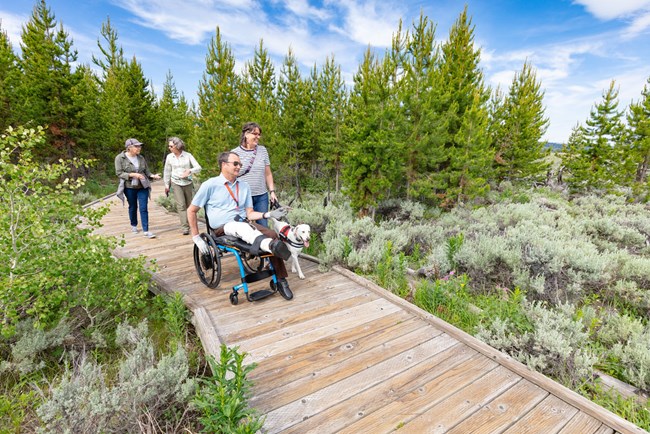
NPS Photo
Visiting parks increases your physical activity.
While you are exploring new places, enjoying beautiful landscapes, and learning about America’s cultural resources and history, you are moving your body. Whether you choose to walk, roll, run, hike, or bike — at a leisurely or heart pumping pace — you are improving your physical, mental, and brain health. Enjoy your visit while still being active.
- lowers the risk of chronic disease
- improves sleep - reduced insomnia and obstructive sleep apnea
- decreases obesity and weight gain
- lowers risk of some cancers
- improves mobility and decreases falls
- strengthens bone density
- boost immune function
- reduces mortality
- decreases risk of dementia
- improves brain function
- decreases symptoms of anxiety and depression
- promotes feelings of well-being
Did You Know?
Increasing your physical activity by even a small amount can have a big impact on your health! And exercising in nature — or green exercise — has even greater benefits on your health then being active indoors.
Learn More > CDC’s Active People, Healthy NationSM
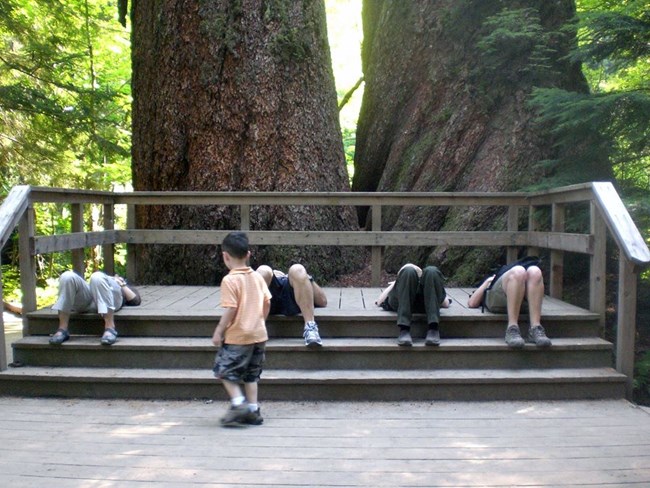
NPS Photo
Visiting parks increases your exposure to nature.
Nature has positive effects on our health when you soak in the environment through your sense of sight, hearing, smell, or touch. Every park provides unique experiences to improve your health. Take full advantage of the health benefits of being in nature by choosing environments that make you feel comfortable and safe. Consider the types of landscapes and natural spaces that you enjoy and plan an adventure!
- Reduces blood pressure
- Reduces heart rate
- Reduces levels of stress hormones
- Lowers physiological stress
- Boosts immune function
- Improves memory
- Reduce mental fatigue
- Improves concentration
- Restores attention
- Increases creativity
- Decreases need for ADHD and ADD medication in children
- Improves learning/academic performance
- Decrease depression, anxiety, anger, frustration, and aggression
- Improve happiness, well-being, and life satisfaction
- Increase self-esteem
Did you Know?
“Spending at least 120 minutes a week in nature is associated with good health and well-being” (White et al., 2019)

NPS Photo
Visiting parks promotes mindfulness.
It is getting more challenging to escape the distractions of every day life. By practicing mindfulness in parks, or focusing on being present, you can feel happier and less stressed. Find a quiet place to focus on your breathing or the sensations you feel around you — the feel of grass, the smell of flowers, the sound of the river. Journal your experience to help you concentrate on what you are feeling.
- Lower blood pressure
- Improve sleep
- Manage pain
- Reduce anxiety
- Reduce depression
- Improve quality of life
Learn More about Mindfulness > NIH News in Health
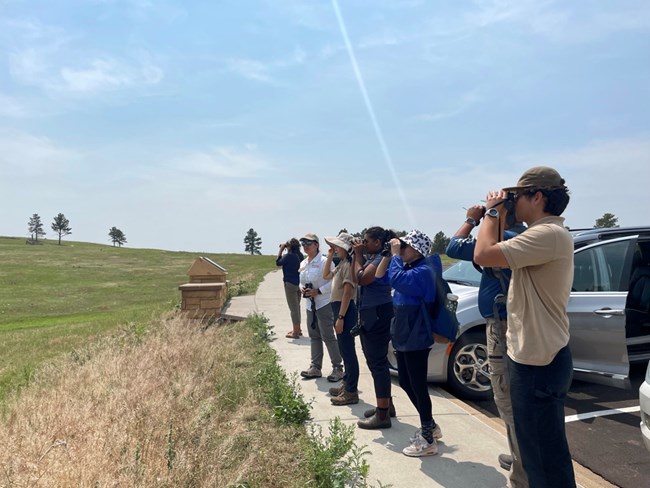
NPS Photo
Visiting parks provides opportunities to socialize.
Spending time with friends and family —or even meeting new people — makes us happier and more satisfied with life. Visiting a park is a great excuse to invite someone to explore with you or strike up a conversation with a knowledgeable park ranger or fellow visitor.
- Manage pain
- Decrease risk of diabetes
- Improved functional independence with aging
- Improve memory
- Decreases risk of dementia
- Improves life satisfaction
- Improves quality of life
- Lowers stress
- Decreases loneliness and social isolation
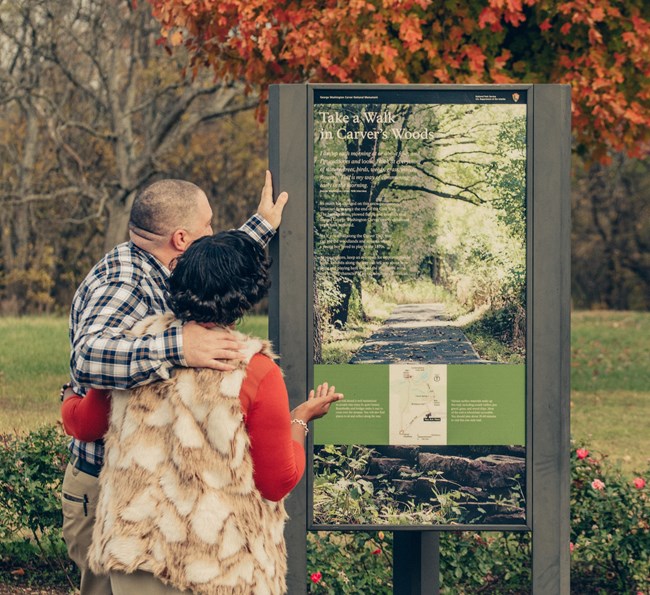
NPS Photo
Visiting parks inspires curiosity and life-long learning.
Parks preserve, protect and share some of our most important historical and cultural resources. Visit a park to expand your knowledge, challenge your perspective, and learn new skills. Life-long learning even promotes brain function and self-confidence. Find a park that sparks your curiosity!
- Improves brain function
- Improves memory
- Decreases age-related cognitive decline
- Decreases risk of dementia
- Increases self-confidence
- Increases self-efficacy
- Increase well-being from socialization
Did You Know?
Curious people are happier!

NPS Photo
Visiting parks promotes empathy.
By learning about the stories, histories, and experiences of many peoples, you can strengthen your ability to imagine how another person may be thinking or feeling. This improves your connection with others as well as your own health and wellbeing.
- Decreases stress
- Improves emotional regulation
- Improves sense of connection with others
- Improves well-being
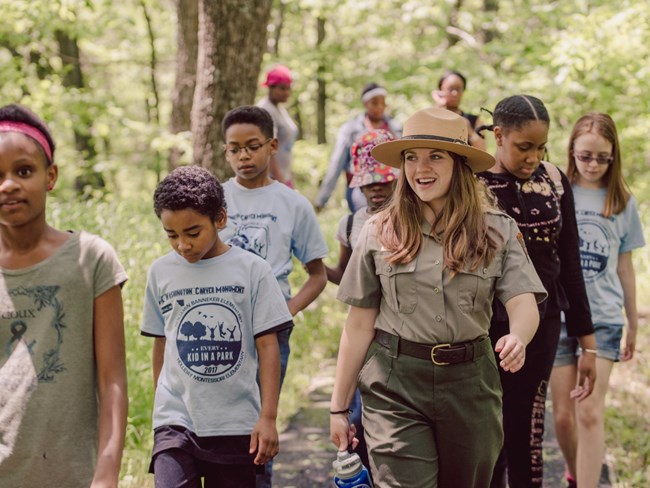
NPS Photos
"Health is created and lived by people within the settings of their everyday life; where they learn, work, play and love."
(Ottawa Health Promotion Charter)
Visit Healthy Parks Healthy Parks to learn about the power of parks for your health.
- American Heart Association. (2022). American Heart Association Recommendations for Physical Activity in Adults and Kids. Retrieved from https://www.heart.org/en/healthy-living/fitness/fitness-basics/aha-recs-for-physical-activity-in-adults
- The Community Guide (2022). Parks, Trails and Greeways increase physical activity. Retrieved from https://thecommunityguide.org/content/cpstf-recommends-park-trail-and-greenway-infrastructure-interventions-increase-physical-activity
- Centers for Disease Control and Prevention. (2021). Health Benefits of Physical Activity for Adults. Retrieved from https://www.cdc.gov/physicalactivity/basics/adults/health-benefits-of-physical-activity-for-adults.html
- Cohut, M. (2018). What are the health benefits of being social? Medical News Today. Retrieved from https://www.medicalnewstoday.com/articles/321019#_noHeaderPrefixedContent
- Hartig, T., Michell, R., De Vries, S., & Frumkin, H. (2014). Nature and Health. Annual review of public health, 35, 207-228.
- James, P., Banay, R. F., Hart, J. E., & Laden, F. (2015). A review of the health benefits of greenness. Current epidemiology reports, 2(2), 131-142.
- Kuo, M. (2015). How might contact with nature promote human health? Promising mechanisms and a possible central pathway. Frontiers in psychology, 6, 1093.
- Laal, M. (2012). Benefits of lifelong learning. Procedia-Social and Behavioral Sciences, 46, 4268-4272.
- NIH News in Health. (June 2021). Mindfulness for your health: The benefits of living moment by moment. Retrieved on April 1, 2021 from NIH News in Health. (June 2021). Mindfulness for your health: The benefits of living moment by moment.
- Segal, E. (2018). Five ways empathy is good for your health. Psychology Today. Retrieved on April 6, 2022 from https://www.psychologytoday.com/us/blog/social-empathy/201812/five-ways-empathy-is-good-your-health
- White, M. P., Alcock, I., Grellier, J., Wheeler, B. W., Hartig, T., Warber, S. L., ... & Fleming, L. E. (2019). Spending at least 120 minutes a week in nature is associated with good health and wellbeing. Scientific reports, 9(1), 1-11.
